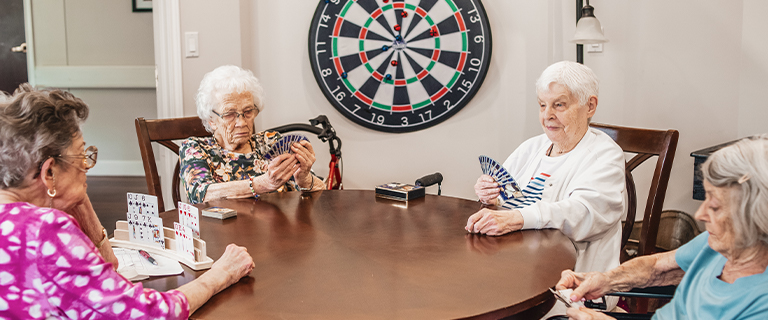Aging gracefully is an art, and it’s often easier to reach than you may think. One of the simplest ways to enjoy a healthy, fulfilling, and vibrant lifestyle is through something called “preventive medicine.” But what is this, exactly?
Preventive medicine is an approach to self-care that focuses on being proactive rather than reactive. It aims to build your physical health, mental health, and lifestyle habits to help you prevent problems in the future rather than recover from them once they occur.
What Is Preventive Medicine?
Preventive medicine focuses on preventing problems in the first place. This approach to healthcare prioritizes your well-being and aims to prevent illnesses, diseases, and injuries before they happen. It’s a comprehensive approach that includes everything from healthy lifestyle habits to regular medical checkups.
By taking care of your body and mind proactively, you can potentially avoid serious health concerns that may arise as you age. But preventive medicine isn’t just about preventing disease; it’s also about promoting overall health and wellness, which can lead to a more fulfilling and vibrant life.
Physical Health for Seniors
To practice preventive medicine, the first place to look is your physical health. Regular exercise and an active lifestyle have very little to do with esthetics and vanity; rather, it’s about keeping your body in good enough shape to avoid easily preventable problems like:
- Obesity
- Heart disease
- High blood pressure
- Arthritis
- Falls and related injuries
You can start by gradually increasing how much you get up and move about. It’s recommended that any person over the age of 65 participates in at least 150 minutes of moderately intensive exercise every week, alongside balance exercises and some strength training to maintain muscle mass.
These exercises can be anything from walking, to yoga, to swimming. All of these are gentle on the joints while still offering a host of physical benefits. Through regular exercise and movement, you can significantly lower the risk of all kinds of health conditions. It’s a great way to nurture your own personal growth on your journey to better health.
Mental Health for Seniors
Just as you nurture your physical health, you also need to pay attention to your mental well-being. A positive mindset and emotional resilience can be incredibly empowering, but they’re also key in reducing the impact of mental health conditions like depression and anxiety.

Mental health can be complicated, especially for older adults who may be dealing with new unique challenges in their lives. A few ways you can support your mental health are to:
- Engage in activities that stimulate your mind, like reading, puzzles, or learning a new skill.
- Stay connected with friends and family, whether it’s through phone calls, video chats, or in-person gatherings. These relationships are crucial for emotional support and happiness.
- Practice mindfulness or meditation. Taking a few moments each day to reflect or simply breathe can greatly enhance your mental clarity and reduce stress.
- Explore creative outlets such as painting, writing, or gardening. These activities can be therapeutic and provide a wonderful sense of accomplishment.
- Make a habit of keeping a journal. Writing about your thoughts and feelings can be a healthy way to process experiences and promote emotional well-being.
- Consider joining local clubs or classes that align with your interests. Engaging with others on shared passions can be a great way to foster new friendships and keep your mind invigorated.
Remember—it’s always okay to reach out for help if you feel overwhelmed. You deserve unconditional love and support, and a strong support system is key to a fulfilling life. Seeking help is never a sign of weakness; it’s a sign of mental strength.
Tips for a Senior-Safe Healthy Lifestyle
A healthy lifestyle is the foundation of your overall health. However, it’s easy to fall into poor habits that we carry with us for the rest of our lives. If you’re looking to improve your lifestyle, here are some tips:
- Follow a balanced diet: Eat plenty of fruits, vegetables, whole grains, and more. Nutrition is key to a healthy life.
- Stay hydrated, and drink plenty of water throughout the day.
- Get enough sleep: Aim for 7–9 hours of sleep every night. A regular sleep schedule is crucial for preserving your physical and mental health!
- Stay socially active: Make an effort to connect with others, whether through community events, clubs, or volunteering. Healthy relationships can bring joy and a sense of belonging.
- Limit alcohol consumption and avoid smoking. Making these choices can significantly improve your overall health and well-being.
- Schedule regular checkups: Don’t hesitate to visit your healthcare provider regularly for screenings and vaccinations to keep an eye out for potential issues early.
By embracing these practices, you can improve your overall well-being and enrich your life. Remember—every small step you take counts on this journey toward healthy living!
Be Proactive, Not Reactive
Preventive medicine is about taking charge of your health and well-being. It’s crucial to focus on yourself and your needs in this area. You deserve unconditional love and support, and our team at Parsons House Cypress is here to help you on your journey.
In our community, you can celebrate life each and every day. With easy access to plenty of exciting activities, fitness classes, spiritual programs, and more, we can work closely with you to practice preventive medicine and nurture your personal growth. We’re here for you, so visit our website for more information, and book a tour with our community today!



